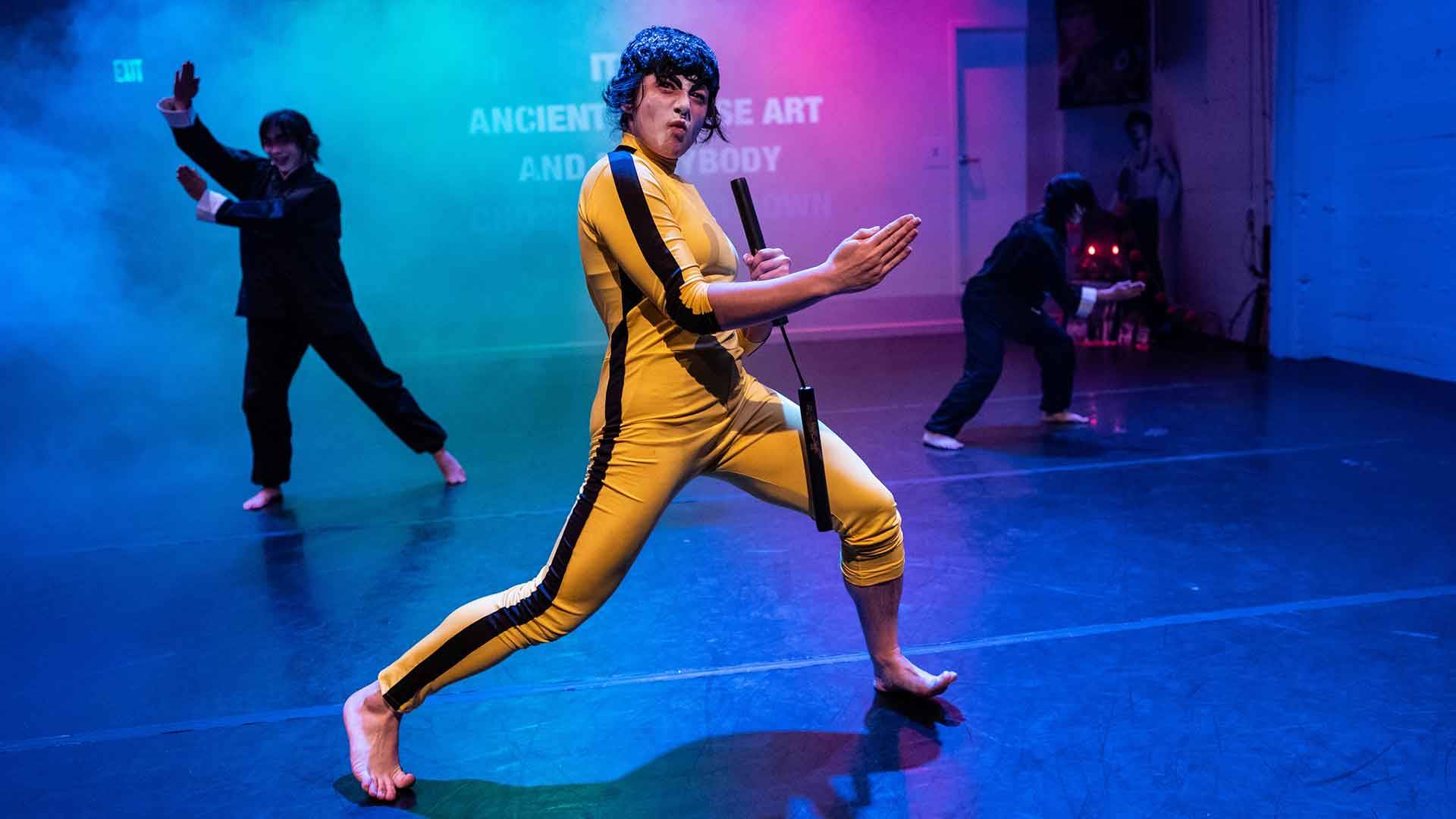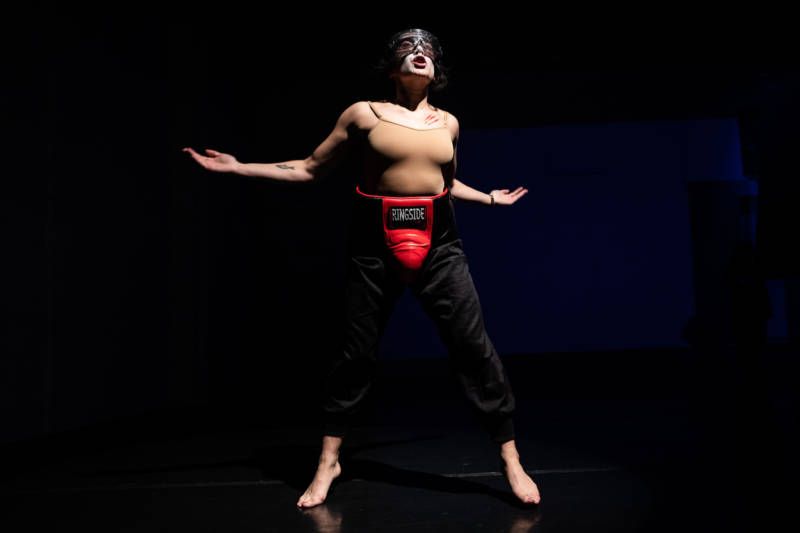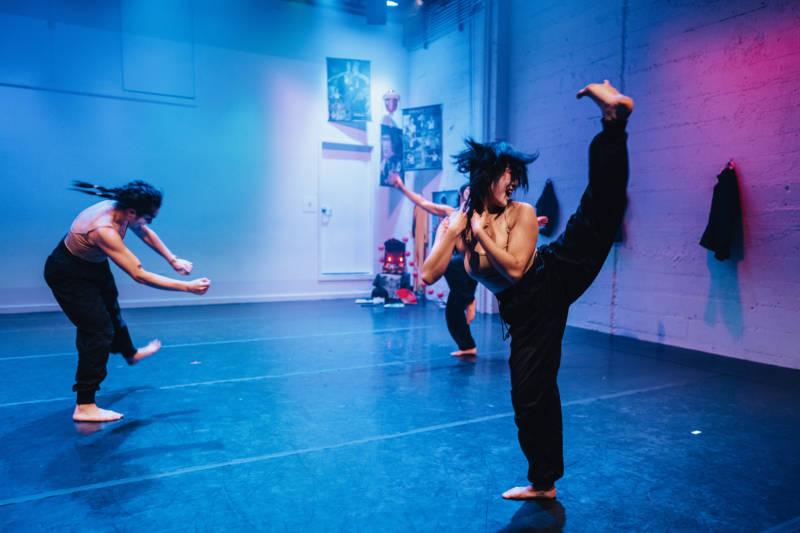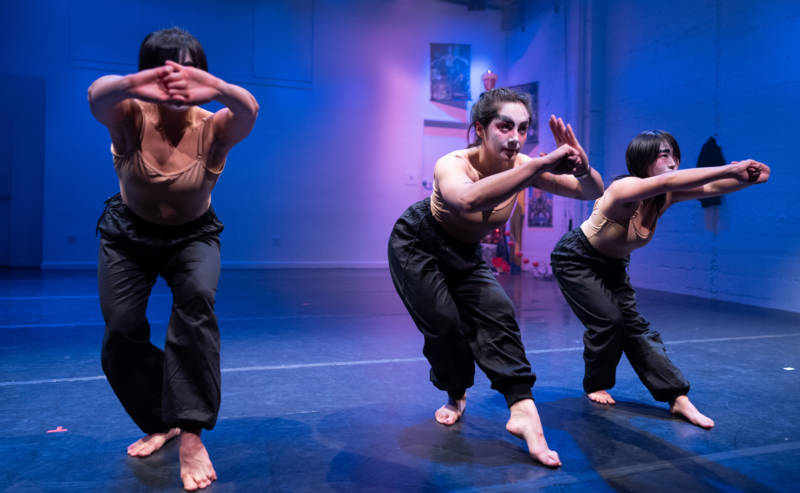It’s the sound of water that you notice first, walking into the mainstage space at CounterPulse. The gurgle of a flowing river, the persistent chatter of birds, the crunch of gravel. A voiceover describes the setting as it is now—“brown and overgrown…no place for bougie hipsters”—and as it was when Santa Cruz’ last Chinatown lined the San Lorenzo river: a litany of hands, bodies, and children playing in the river.
With that introduction, a woman (Cynthia Ling Lee) in denim overalls and plaid shirt from an earlier century begins to play too, leaping across and splashing in the imaginary water, her body ably capturing the unselfconsciousness of a small child.
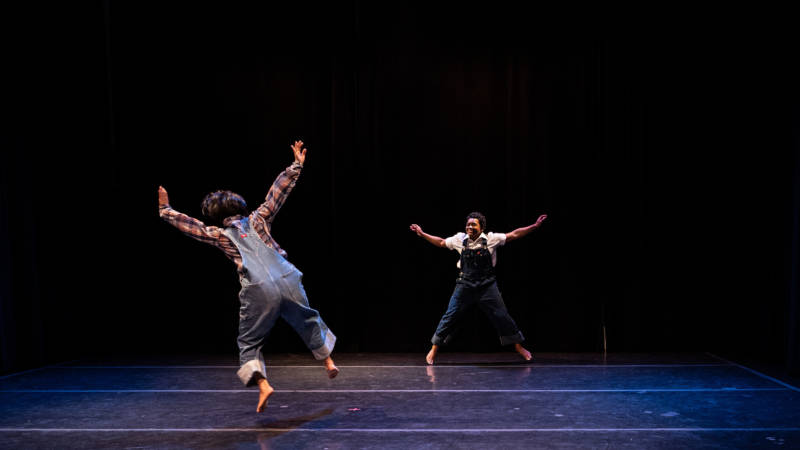
But as with childhood, such idyll cannot last forever. With the introduction of a second dancer, the equally expressive Clarissa Dyas, the piece shifts tonally. As they skip across the stage they sing “Ten Little Chinamen,” mirroring each other, lightly mocking each other, feigning an innocence over the outrageous lyrics we can’t believe. An ominous rumble from Anna Friz’ soundscape weights the atmosphere as two more performers (Lynn Huang and Zoe Huey) enter the stage and help to bring Lee down in a cruel game.
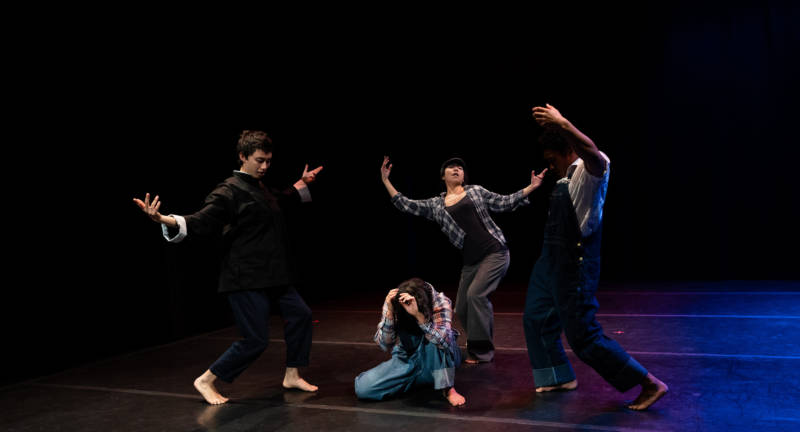
By turns playful, melancholy, and unflinching, Lost Chinatowns—one of two pieces in CounterPulse’s Performing Diaspora series—explores a forgotten history of the Chinese inhabitants of Santa Cruz, hidden in plain sight along the banks of the San Lorenzo river.
A professor of dance at UC Santa Cruz, Lee first became aware of the erasure of Santa Cruz’s Chinese community when she tried to buy food for cooking and couldn’t find the ingredients she needed. Home to four successive Chinatowns between 1860 and 1955, Santa Cruz has preserved little trace of its former inhabitants, to the point that not even an Asian grocery store survives. Lee’s initial frustration became an artistic inquiry, which led her to explore the San Lorenzo River, the virulent anti-immigrant language of the courts and politicians over the centuries, the poetry of the migrants, and the photographic essays of George Lee. Directed by herself and Shyamala Moorty, Lost Chinatowns offers a space for reflection and reckoning, revealing the ways the past continues to inform the modern day.
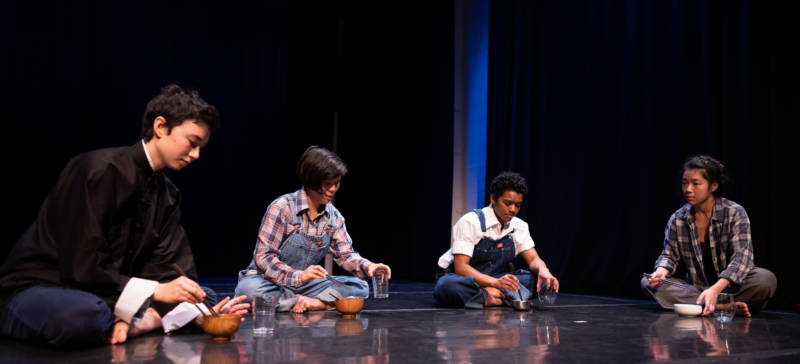
Here are some fast facts about Bruce Lee. One of his legs was shorter than the other. He once won a cha-cha dancing competition. He had his underarm sweat glands surgically removed. His childhood nickname was “never-sit-still.”
